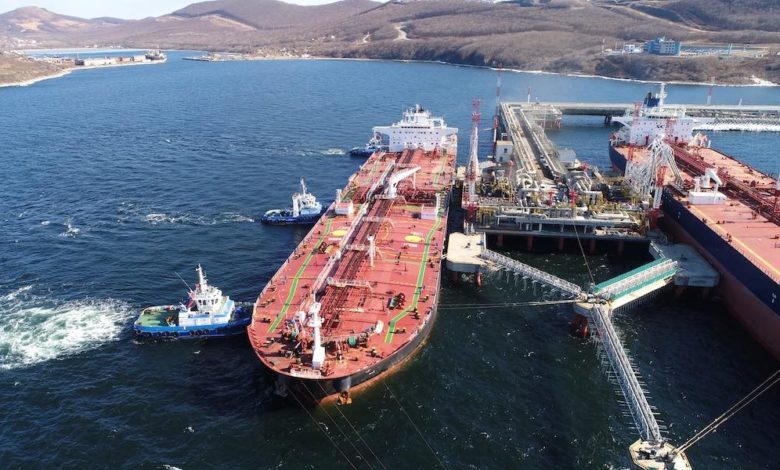
The tanker fleet engaged in the Russian trade post-sanctions is predominantly Greek-operated and composed mostly of older aframax and MR tankers, according to Vortexa, a data analytics firm.
The size of the Greek-operated fleet post-European Union ban is nearly 2.5 times bigger than the next fleet, Russia’s.
Nevertheless, the market share Greeks enjoy of this lucrative trade is falling. Vortexa data shows Greek operators had a 40% market share of Russian crude leaving Baltic and Black Sea ports last year, a share that has now fallen to 33% with the rise of Indian and UAE-controlled tanker fleets.
In the clean tanker trades out of Russia, the Greeks are far more dominant. The Greek-operated fleet moving Russian CPP is about four times larger than the next-largest fleet, according to Vortexa.
“Nearly 20% of the global aframax and suezmax tanker fleet is now involved in the Russian crude and residual fuel oil trade, and increasingly shifting towards operating exclusively in Russian trade,” a recent report from Vortexa stated.
Similar behaviour is seen in the clean tanker segment, particularly in MR tankers, which has consequently reduced the size of the mainstream tanker fleet and added more volatility to freight rates in recent weeks.
Having risen steadily since the start of 2022 prices for secondhand MRs are currently at the highest levels since October 2008, according to VesselsValue. The volume of MR sales has firmed, rising by 39% year-on-year, with 79 sales reported so far this year. The average age of vessels sold in 2023 to date is 14 years.
Data from broker Gibsons shows a growing number of western players seeming to be gaining confidence to lift Russian cargoes.
Russian crude exports have thus far remained robust. Shipped volumes were 5.33m barrels per day in March, which averages to just over 5m barrels per day so far in 2023 versus 4.6m barrels per day in 2022.
Gibsons argued in its latest weekly report that the price cap on Russian oil exports has so far been successful in reducing Russia’s export tax revenue, while ensuring barrels continue to flow. However, going forward, Gibsons warned this success could be at risk if owners cannot viably engage in Russian trade whilst maintaining compliance with the price cap.
